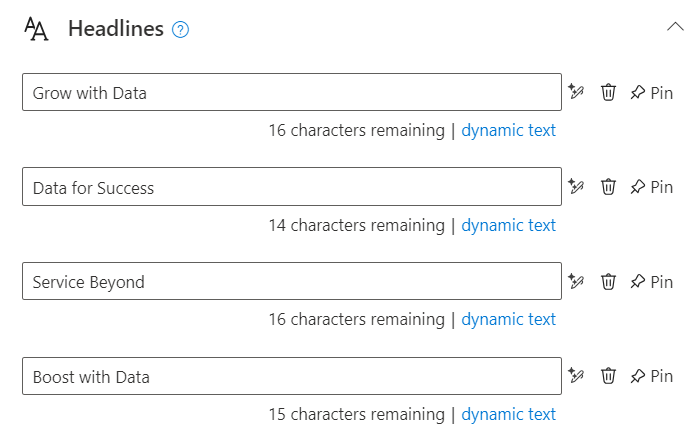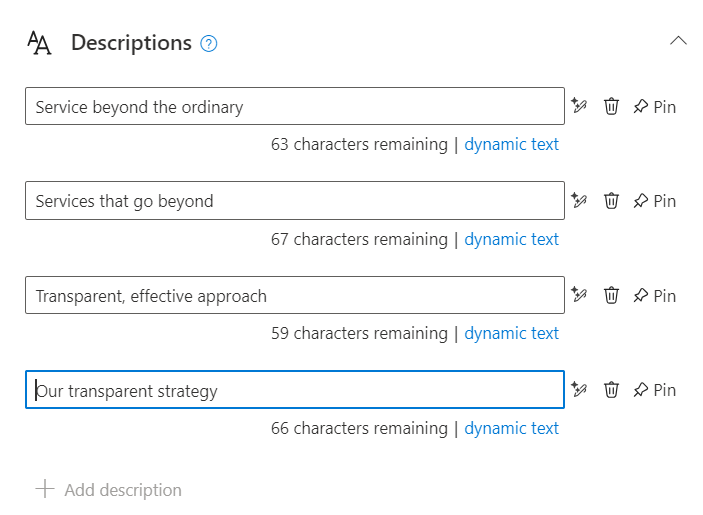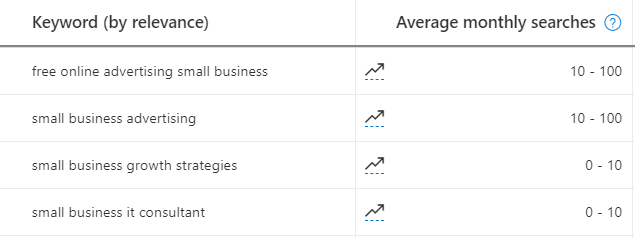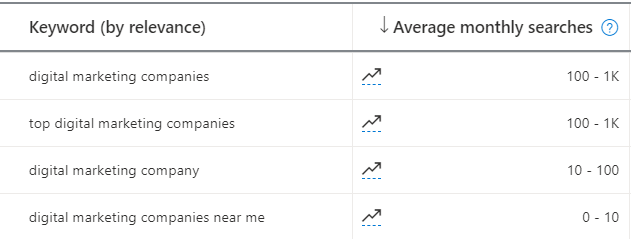We’ve all heard one variation on the now classic rift or another.
AI is going to replace X – where X is whichever job the article is loudly sounding the warning about.
While AI has certainly encroached in a lot of industries (particularly, the creative ones), the impending all or nothing switch from human experts to AI tools hasn’t happened yet.
And that’s a good thing.
Even more so when we look at the state of AI tools for various aspects of digital marketing – namely, search advertising.
That’s not to say AI can’t help us or isn’t useful as a tool – but the important thing to remember is that it’s a tool, and one that can be used both well and poorly depending on the circumstances.
Why AI isn’t the everything solution it was promised to be?
Launching successful ads using search advertising typically involves several components. There’s the keywords that trigger your ads, the locations where they appear (such as cities or provinces), and the text for the ad themselves, to name a few.
Now, with the still-growing prevalence of AI, platforms such as Google Ads and Microsoft Ads now have features that can help suggest or even auto-create many of those assets for you.
Often it takes a click or two and then, like magic, you have a fully created ad campaign ready to go. Moreover, because Google and Microsoft want you to use their AI tools, they’re often placed prominently, making it very tempting to use.
Unfortunately, like a lot of things that seem too good to be true, AI created campaigns are not as good of an option as they might seem. They make mistakes, produce inaccuracies, and often don’t understand the fundamental crux of your business the way people passionate about your brand would.
Two areas in specific really jump out to us as being big “don’ts” – especially if you’re trying to rely on AI for your search advertising without reviewing the results
1) AI doesn’t understand your unique selling propositions (USPs)
Understanding a brand usually takes time and connection. When a digital marketing works with your business, they will typically go through fact-finding calls, spend time reviewing your current material, and really trying to get to know what makes your brand unique.
This initial process then helps inform the way content is created – including carefully writing your primary text in search advertising.
AI doesn’t do this.
One of the main selling points of AI is how fast it works and, like an over-eager intern, by rushing to get result as fast as possible, nuances are lost in the process.
To take a concrete example, here’s what happens when I opt to use the AI generated headlines for our own brand Acorn Digital using Microsoft Advertising’s built-in GPT.

Now, if I used these curious headlines, what would the people seeing our ad think we provide? Data for success sounds like we are peddling data and whatever “Service Beyond” means is truly beyond me.
It doesn’t get much better when I try to generate descriptions.

I see we offer “service beyond the ordinary” – which sounds like something one might see on the wall of a dystopian science-fiction cafe – and again with the “services that go beyond.”
True, we could use those as a starting point by writing out the rest, but is this any better than just writing what we know? And if you’re planning on launching ads for your business alone, I don’t see how results like this are going to wow your potential customers.
Bottom line: AI can generate results very quickly. The quality of the results is a whole other story.
2) AI doesn’t understand the nuances nor value of what you are providing.
In the same manner that AI doesn’t really “get” your USPs, it has just as difficult of a time trying to decipher the nuances of what it is you offer.
This really comes into play when selecting keywords for your search ads.
Despite what platforms seem to suggest, you should not pursue only the top searched keywords related to your business.
The reason is because many of the most searched keywords are either offer something you don’t or lack the intent for someone seeking to make a purchase.
To give an anecdotal example of each:
- Keywords with “free” or “online” are among the most popular ones out there. If you neither offer free products nor online services, these are not only worthless but bringing in the wrong clicks.
- Keywords that start with “examples of” or “what is a” are also widely searched, but these folks are not looking to buy so much as understand what a product or service is in the first place. Now, they could make for good organic keywords, but when you use search advertising, every click costs money, so every click should have a chance of converting into a sale.
So how does AI fare when helping generate keywords that navigate these nuances? The results are decidedly mixed.
Take this example below:

Here, we have the double whammy of “free” and “online” right there as our first keyword in the mix.
The online part is true, we do offer online advertising services for small businesses, but there’s no free lunch included.
And here’s another example that was generated by the AI inside the application:

“Top” is a common permutation used in popular keywords, but from experience it’s not always as valuable for netting those “in-market” clicks as folks often use this in their earlier research stages.
On the flip side, “near me” – which has fewer searches – is likely going to lead to stronger clicks since this suggests they want services that are local, rather than just finding out who is the top of the game anywhere.
Why is AI failing when it comes to search advertising?
Like we mentioned earlier in this article, advertising platforms really want you to use their AI tools to create your assets like keywords and ad text automatically. All it needs is a quick glance at your landing page and boom a complete set of assets.
However, big platforms like Google and Microsoft want you to do this because your ad campaigns are being used to train their AI – and not because they think the results will be better than what a marketer could write.
In other words, your ad dollars are being spent to improve their systems.
The big problem isn’t that what the AI writes will be less engaging than what a human could do (which is often the case), but the way it misunderstands things.
Fully expect to see false claims, inaccurate statement, and even the use of some head scratching synonyms.
One reason for this is because the AI bases your assets on what it knows about your business and then tries to create whatever will get the most attention – whether it’s even true or not.
Remember: AI isn’t perfect, and we’re still a long way from a place where it will be able to create assets on par with a human expert.
True, using these assets can save you time when creating your campaign, but if you don’t carefully review what it generated you might be in for a surprise.
In the end, no one knows your business better than you do (although we hope that we might come in a close second if you work with us).
At Acorn, we’ve got a lot of experience working with small businesses as well as AI tools. There are some ways businesses can leverage AI to improve their offerings, but it often helps to understand how best to utilize these tools without falling into the grey sludge of generic AI content.
In any event, where search advertising for your business is concerned, we always recommend having a human expert manage or at very least regularly audit your account. If you’re curious to know more, please contact us.


